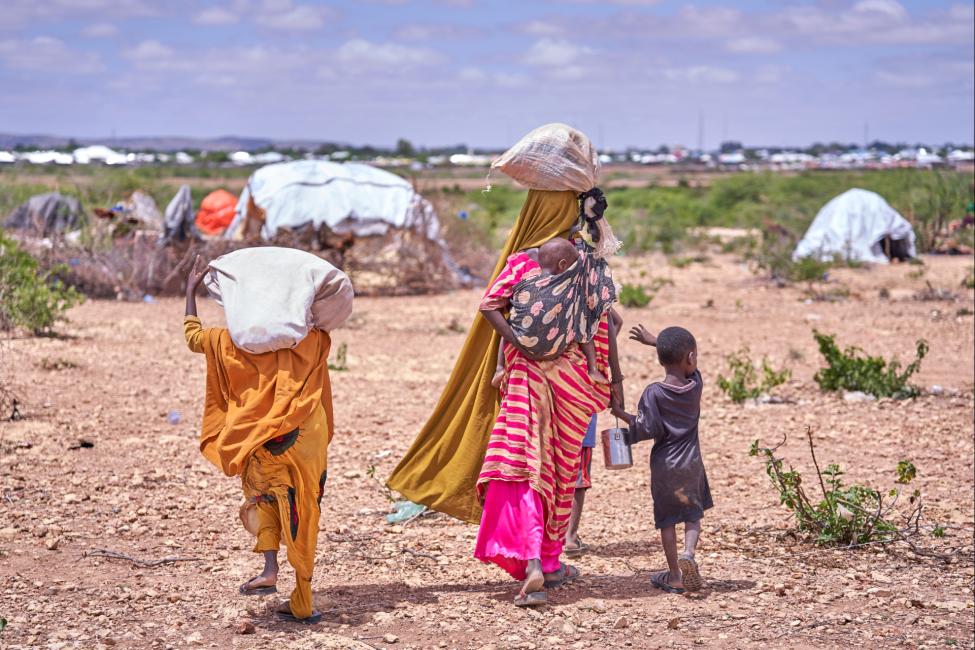-
Who we are
WHO WE AREThe International Organization for Migration (IOM) is part of the United Nations System as the leading inter-governmental organization promoting since 1951 humane and orderly migration for the benefit of all, with 175 member states and a presence in 171 countries.
-
Our Work
Our WorkAs the leading inter-governmental organization promoting since 1951 humane and orderly migration, IOM plays a key role to support the achievement of the 2030 Agenda through different areas of intervention that connect both humanitarian assistance and sustainable development.
What We Do
What We Do
Partnerships
Partnerships
- Where we work
-
Take Action
Take Action
Work with us
Work with us
Get involved
Get involved
- Data and Research
- 2030 Agenda
Africa Climate Summit: Towards a Greater Response to Climate Change Impacts on Human Mobility
Geneva/Nairobi –The International Organization for Migration (IOM) is calling for concrete actions to address climate change and human mobility challenges ahead of the Africa Climate Summit happening in Nairobi from 4 to 6 September.
The Africa Climate Summit is the largest gathering of African Heads of State, Ministers, UN agencies, humanitarian and development partners, the private sector and youth in the continent’s history. It represents an unprecedented opportunity to address the increasing impacts of climate change on human mobility in Africa.
African countries are among the most vulnerable to the impacts of climate change, experiencing the dire impacts of the climate crisis including drought, flooding, extreme weather temperatures, rising sea levels. In 2022, more than 7.5 million internal disaster displacements were registered on the African continent (IDMC, Global Report on Internal Displacement, 2023).
"We have officially entered the era of climate migration,” said IOM Director General-Elect Amy Pope.
“Solutions to address the nexus of climate change and human mobility at a continental scale are urgent.”
Without efficient and sustained climate action, up to 105 million people could become internal migrants by 2023 (World Bank, Groundswell Report, 2021) in Africa alone. IOM is committed to work on sustained options for people who want to stay, for people on the move and for people who want or have to move because of the effects of climate change on the African continent.
At the Africa Climate Summit, IOM will officiate the signing of the ‘Continental, Kampala Ministerial Declaration on Migration Environment and Climate Change’, known as KDMECC-AFRICA, the first government–led, comprehensive and action-oriented framework that practically and effectively addresses climate-induced mobility issues and the needs, gaps and opportunities of human mobility caused by climate change in Africa.
“The KDMECC-AFRICA is a critical, groundbreaking framework to address climate-induced mobility and to identify and support the opportunities it unlocks for sustainable development. I hope to see support for the Declaration from all the Ministers of the African Member States who attended the KDMECC-AFRICA expansion conference last week,” the DG-Elect said.
“I look forward to meeting with our development partners, UN sister agencies and other partners at the IOM call-to-action event to share plans, pledges and commitments for supporting governments to address climate-induced mobility in Africa.”
She will also host two high-level side events on climate financing and multi-level cooperation to address human mobility in Africa.
The Summit is a crucial milestone ahead of the Conference of Parties (COP28) in December in the United Arab Emirates, to unite the African continent towards agreement on climate change impacts on human mobility.
***
For more media enquiries and information, please contact:
In Nairobi : Yvonne Ndege, ronairobimcu@iom.int
In Geneva: Chloé Lavau, clavau@iom.int
